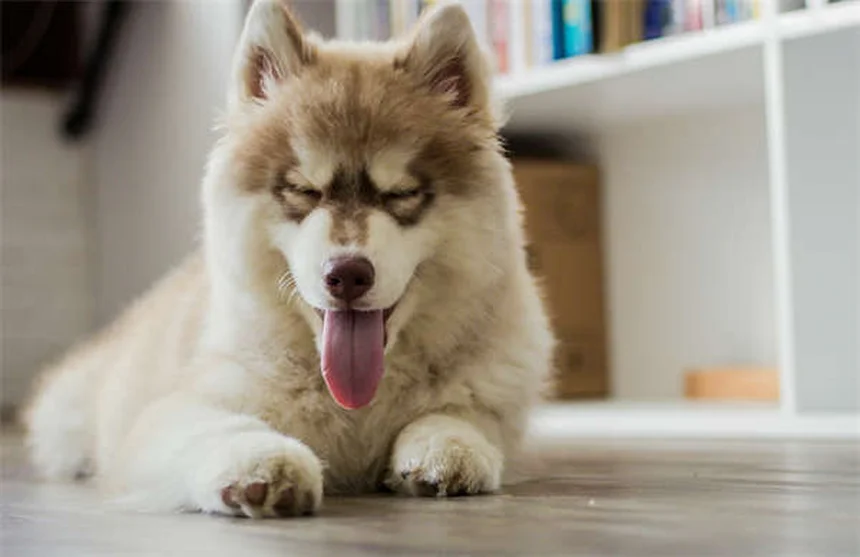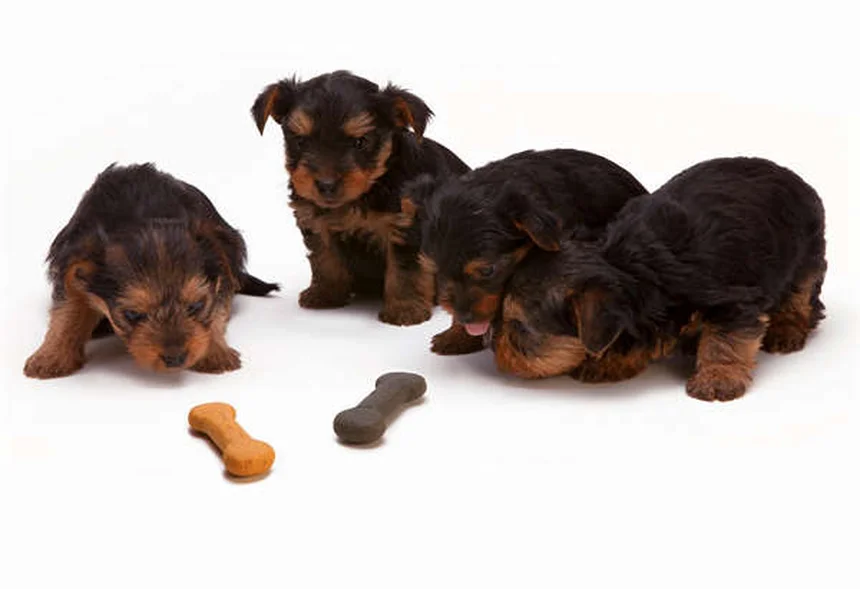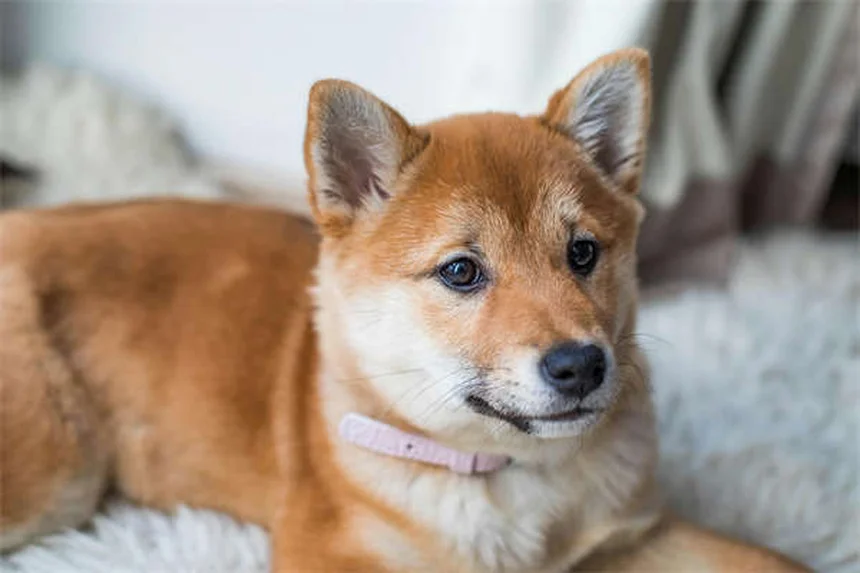Reverse sneezing in dogs got you worried? Here's the deal: it looks scary but is usually harmless. We've all been there - one minute your pup's fine, the next they're making these alarming honking sounds like they forgot how to breathe. The good news? Most episodes last less than a minute and don't require treatment.As a dog owner myself, I know how stressful that first reverse sneezing episode can be. That's why I'm breaking it down for you. Reverse sneezing happens when something irritates your dog's soft palate, causing those weird spasms. Common triggers include allergies, excitement, or even just sniffing too hard. The key is staying calm (easier said than done, I know!) and knowing when it's time to call the vet.In this guide, we'll cover everything from quick fixes during an episode to long-term prevention strategies. You'll learn how to tell reverse sneezing apart from actual choking, when to worry, and simple tricks like gentle throat massage that can help stop the episode. Let's get your pup breathing easy again!
E.g. :How to Bathe a Cat Without Losing an Arm: 5 Vet-Approved Steps
Picture this: you're chilling with your pup when suddenly they make this bizarre honking noise like they're trying to inhale a sneeze. That's reverse sneezing, and while it sounds terrifying, it's usually harmless. Think of it like when you get water up your nose at the pool - uncomfortable but not dangerous.
The technical term is "paroxysmal respiration," but let's keep it simple. When something tickles your dog's soft palate (that fleshy part at the back of their mouth), their body goes into panic mode. The muscles spasm, the airway narrows, and boom - you've got that alarming honking sound. Most episodes last under a minute, and your dog will be back to begging for treats like nothing happened.
Ever wonder why your dog suddenly turns into a honking machine? Here's the scoop - their anatomy makes them prone to these episodes. Brachycephalic breeds (you know, those cute smush-faced dogs like Pugs and Bulldogs) are especially vulnerable because their airways are already cramped.
| Common Triggers | Prevention Tips |
|---|---|
| Pollen or dust | Keep windows closed during high pollen days |
| Strong perfumes | Use unscented cleaning products |
| Excitement | Teach calm greeting behaviors |
 Photos provided by pixabay
Photos provided by pixabay
This is the million-dollar question every dog owner faces. Here's how to tell the difference: during reverse sneezing, your dog will stand still with their neck extended. If they're actually choking, they'll likely paw at their mouth and show signs of distress. When in doubt? Always call your vet!
Pro tip: Keep your phone handy to record an episode. Not only will this help your vet diagnose the issue, but you'll also have hilarious footage to show at family gatherings. Just imagine your Bulldog's snorts playing over the Thanksgiving turkey!
Most reverse sneezing episodes are no big deal, but here's when you should raise an eyebrow:
Remember that time your dog ate an entire sock? (We've all been there.) Foreign objects can sometimes trigger these episodes, so if you notice anything unusual, it's better to be safe than sorry.
Next time your pup starts their goose impression, try these vet-approved tricks:
Fun fact: Some dogs respond well to you making funny faces at them! The distraction can sometimes break the cycle. Who knew being silly could be medically beneficial?
 Photos provided by pixabay
Photos provided by pixabay
If Fido's turning into a regular honking machine, it might be time for some lifestyle changes. Consider switching to a harness instead of a collar - that constant pressure on their throat from leash pulling can trigger episodes. Also, maybe lay off the strong air fresheners. Your nose will thank you too!
Did you know that 1 in 3 reverse sneezing cases are allergy-related? If pollen season turns your dog into a snorting mess, ask your vet about antihistamines. They might recommend something as simple as children's Benadryl (but never give medication without consulting your vet first!).
Your vet will likely start with the basics: listening to your dog's heart and lungs, checking for nasal discharge, and asking about potential triggers. They might recommend some tests, but don't panic - this is just to rule out serious conditions.
Here's a comforting thought: most dogs sail through these exams with flying colors. The hardest part is usually keeping them from licking the vet's face the entire time!
In rare cases, your vet might suggest:
Remember that time your dog ate an entire pizza? (Okay, maybe that was just my dog.) The point is, our furry friends get into all sorts of trouble, and sometimes we need professional help to sort it out.
 Photos provided by pixabay
Photos provided by pixabay
You can't prevent every episode, but you can stack the odds in your favor. Start by identifying triggers - is it seasonal allergies? Excitement when you come home? That new scented candle?
Here's a game-changer: try using a humidifier during dry months. Just like us, dogs can get irritated nasal passages when the air is too dry. Plus, it's great for your skin too - bonus!
For severe cases, your vet might prescribe:
But here's the good news: most dogs never need medication for reverse sneezing. It's usually just one of those quirky things our canine companions do, like spinning in circles before lying down or barking at the vacuum cleaner.
The first time you witness reverse sneezing can be scary, but take a deep breath. Your dog feeds off your energy, so staying calm helps them stay calm too. Remember: this too shall pass (usually in about 30 seconds).
Pro tip: Create a "reverse sneezing kit" with treats, a small towel, and your vet's number. Keep it handy so you're prepared when an episode strikes. You'll feel like a superhero dog parent!
While most cases are harmless, trust your gut. You know your dog better than anyone. If something feels off, don't hesitate to call your vet. After all, better safe than sorry when it comes to our furry family members.
Final thought: reverse sneezing might sound alarming, but it's usually just another weird dog thing. Like tail chasing or that intense stare they give you when you're eating chicken. Dogs gonna dog!
Ever wonder what's actually happening inside your dog's nose during these episodes? The mechanics are fascinating - when irritants hit those sensitive nasal passages, your dog's body overreacts by forcefully inhaling through the nose instead of exhaling like a normal sneeze. It's like their respiratory system gets its wires crossed temporarily.
Here's something most owners don't realize: dogs have an incredible sense of smell, with up to 300 million olfactory receptors compared to our measly 6 million. This superpower comes with a downside - their noses are way more sensitive to irritants. That fancy new carpet cleaner you're using? Might be torture for your pup's schnoz!
While any dog can experience reverse sneezing, some breeds are practically Olympic athletes when it comes to these episodes. Small breeds and flat-faced dogs top the list, but did you know long-nosed breeds like Collies can be prone too? Their elongated nasal passages create more surface area for irritation.
Let me share a personal story - my neighbor's Dachshund has reverse sneezing episodes every time he gets excited about dinner. We've timed it - like clockwork at 5:45 PM, right when the food bowl comes out. The vet says it's harmless, but we've started calling it his "dinner alarm system."
You've probably considered pollen and dust, but what about these sneaky culprits?
Here's a quick experiment you can try: for one week, switch to unscented products everywhere in your home. Notice any difference in your dog's episodes? You might be surprised how many modern conveniences are irritating your pup's airways.
Just like humans get seasonal allergies, dogs experience flare-ups during certain times of year. But here's the twist - their worst season might not match yours. Many dogs have the most trouble during fall when mold spores peak, not spring when pollen dominates.
| Season | Common Irritants | Prevention Strategy |
|---|---|---|
| Spring | Tree pollen, grass pollen | Wipe paws after walks |
| Summer | Air pollution, smoke | Limit outdoor time on bad air days |
| Fall | Mold spores, decaying leaves | Keep yard clear of leaf piles |
| Winter | Dry air, fireplace smoke | Use humidifiers indoors |
This is the question that keeps many dog owners up at night. The good news? Most dogs seem unfazed by their own reverse sneezing episodes. They might look confused for a moment, then go right back to whatever they were doing. It's usually more traumatic for us humans watching than for the dogs experiencing it!
But here's an important caveat: some sensitive dogs can develop anxiety about the episodes themselves. If your pup seems to anticipate or fear the episodes, that's when behavioral intervention might help. Simple counterconditioning techniques (like offering treats after episodes) can prevent negative associations from forming.
Let's be real - hearing your dog make those alarming sounds can trigger serious panic. I'll never forget my first experience with reverse sneezing - I was convinced my Golden Retriever was dying, only to have him wag his tail and lick my face 30 seconds later when it passed.
Here's what helped me cope: joining an online support group for owners of reverse-sneezing dogs. Turns out there are thousands of us out there swapping stories and reassurance. Nothing makes you feel better than hearing someone else describe the exact same bizarre honking noise coming from their pup!
Beyond the standard recommendations, some owners report success with these approaches:
Now, I'm not saying you need to turn your home into a doggy spa (unless you want to!), but small changes can sometimes make a big difference. My cousin swears by putting a dab of petroleum jelly in her Bulldog's nostrils during dry winter months - says it helps more than any fancy humidifier!
Want to play detective with your dog's reverse sneezing? Start a symptom journal tracking:
You might discover patterns you never noticed before. One client realized her dog's episodes always happened after visits from a perfume-loving aunt. Mystery solved! Now Aunt Martha gets strict instructions to go scent-free before puppy cuddles.
While reverse sneezing is usually harmless, these accompanying symptoms suggest something more serious:
Here's a helpful analogy: think of reverse sneezing like hiccups in humans - annoying but generally harmless. But if your hiccups lasted for days or came with other symptoms, you'd see a doctor, right? Same principle applies to your pup.
Did you know frequent reverse sneezing can sometimes be linked to dental problems? That's because infected teeth can irritate the nasal passages. Other surprising connections include:
But before you panic, remember - most reverse sneezing is just that: reverse sneezing. These other conditions are uncommon, but worth mentioning so you can be an informed advocate for your dog's health.
E.g. :Reverse Sneezing in Dogs: Causes and What to Do | PetMD
A: Here's how we tell the difference: during reverse sneezing, your dog will stand still with their neck extended making that distinctive honking sound. If they're choking, you'll usually see them pawing at their mouth, showing distress, or having trouble breathing. When in doubt, always err on the side of caution and contact your vet immediately. I always recommend recording an episode if possible - it helps your vet make the right call and trust me, you'll want that hilarious footage later!
A: From my experience, these tricks work best: 1) Gently massage your dog's throat to help relax those spasming muscles, 2) Offer a small treat to encourage swallowing, or 3) Briefly cover their nostrils (just for a second!) to trigger a swallow reflex. Pro tip: Some dogs respond well to distraction - try making funny faces or noises! Most episodes stop on their own within 30 seconds, but these methods can provide relief faster.
A: While occasional episodes are normal, frequent reverse sneezing (multiple times a week) warrants a vet visit. Here's why: it could signal underlying issues like allergies, nasal mites, or anatomical problems. My Bulldog used to do it daily until we discovered his allergy to dust mites. After treatment? Problem solved! Your vet might recommend allergy meds, environmental changes, or in rare cases, further testing.
A: Absolutely! Brachycephalic breeds (those cute smush-faced dogs like Pugs, Bulldogs, and Boston Terriers) are especially susceptible because of their compact airways. Small breeds tend to experience it more too. My neighbor's Chihuahua reverse sneezes every time he gets excited! The key is knowing your dog's normal patterns - if episodes increase suddenly, that's when we get concerned.
A: Important safety note: Never medicate your dog without veterinary guidance! While some vets do recommend children's Benadryl (diphenhydramine) for allergy-related reverse sneezing, the dosage depends on your dog's size and health status. I made this mistake once - gave my 10lb Yorkie too much and had to rush to the emergency vet. Lesson learned! Always consult your vet first for proper dosing and to rule out other causes.
Recommended
How to Bathe a Cat Without Losing an Arm: 5 Vet-Approved Steps
Why Do Dogs Bring You Toys? 3 Adorable Reasons Explained
How to Safely Make Your Dog Throw Up: Vet-Approved Guide
Heartworm Prevention for Dogs: 5 Must-Know Facts to Protect Your Pet
Lung Cancer in Dogs: 7 Warning Signs Every Pet Owner Should Know
Top 10 Longest Living Cat Breeds That Stay With You for Decades